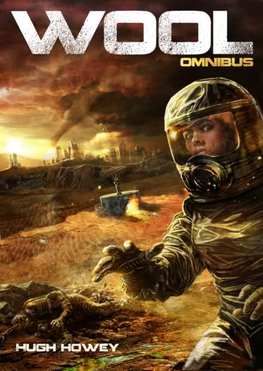Journalist Claire Robertson's fictional
debut comes in the form of the beautiful novel The Spiral House.
With ecchoes of Olive Schreiner and J M Coetzee, Robertson is
ambitious in her first attempt – and successful! Although I
struggled with the archaic language and style of writing in the
beginning of the book, I was sold to the story and determined to
finish it. I eventually got so enraptured in it that I could not put
it down.
The book is made up
of two parallel stories. The first story is set at the end of the
1700s and follows Katrijn van der Caab, a freed slave now working as
a wig-maker's apprentice. The story begins as Le Voir and Trijn go to
assist a client on the farm Vogelzang. The daughter of the house has
shamefully lost her hair, and Le Voir begins the slow work of making
the perfect wig for her, while Trijn joins the kitchen slaves in
their chores. On Vogelzang, which I believe means “birdsong”, the
mistress of the house is losing her mind, and only wants the company
of her caged birds. The master of the house fills his time with race
classification and experiements, and soon builds a bird cage of his
own, the spiral house.
The other story is
set in 1961 at a time when apartheid legislation was being enforced
in South Africa. We follow the nun Vergilius who practically raised
the black teenager Jacob. Her big hope for him is the change of
getting an education in Rome, but her letters seem not to reach their
destination. Vergilius has a streak of rebellion in her, and the only
thing keeping her at the convent is Jacob. But with the arrival of a
group of American travellers, things start to change for Vergilius.
Both Trijn and
Vergilius are in situations they have chosen to be, but where they
are not truly free. Trijn might be a free woman, but she does the
same work as the slaves at Vogelzang, and she is powerless in the
face of the white people who run the farm. This becomes clear when
the young mistress accuses Trijn of stealing, and Le Voir believes
her. Trijn realises that she is guilty because her word against the
mistress is worthless. Simillary, Vergilius' convent life consists of
strict routine where her every move is watched or heard. Her letters
are read before being sent out, and in this matter Vergilius
literally feels the censorship of the apartheid era (but in a
religious context).
Trijn has always
been conscious of her freedom, and what brings on a change for her is
circumstances at Vogelzang that she cannot ignore. The master's
spiral house holds a horrifying secret only Trijn has discovered, and
she decides that she is the only one who can do something to stop it.
She doesn't even fully disclose her secret to her romantic interest.
For Vergilius, on the other hand, the shift comes with the Americans.
While the rest of the South African population is clamping down,
through censorship, banning, physical intimidation, and legislation,
Vergilius actually comes out of her shell and decides to liberate
herself. And we learn that she is reading a book about a Trijn van
der Caab while she's doing it.
There is a lot of
symbolism in this book. The Vogelzang birds and their mad mistress
expressing censorship and imprisonment. Sex and virginity expressed
through how certain insects can get pregnant without a male. The loss
of hair as a symbol of lost innocence and possible promiscuity. And
as a backdrop the South African society that classifies you as less
based on your skin colour. While both stories are set in really dark
periods of South African history, they are full of hope.
Claire Robertson,
this could be the beginning of a beautiful friendship.
Oh,
and I cannot get enough of Joey Hi-Fi's cover designs. Once again he
has me pouring over his design to appreciate the beauty and
thoughtfulness that went into it. [He also made the cover design for
Lauren Beukes' Zoo City
and the new edition of Moxyland].
